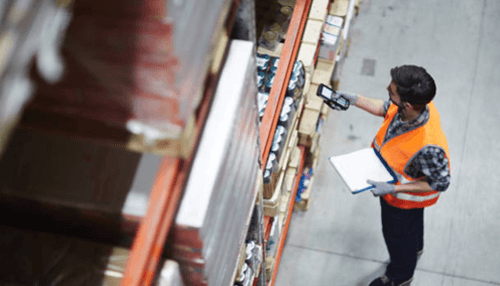The time is coming to say goodbye to the cursed year 2020. The wholesale and distribution business has undergone several ramifications even in this pandemic. But, how can we forget the trends in the wholesale industry that are prevailing since 2019? Of course, the wholesalers are hoping that 2021 will have something better in store for them. The customer-centric approach and technology continue to dominate the wholesale distribution trends. Also, there has been an upsurge in the usage of warehouse robotics and automation. Let’s now look at the trends that are shaking the worldwide wholesale market by storm:
1. Blockchain:
This disruptive technology has been a matter of debate for several years. However, in recent times, we are realizing its potential and ability to transform day-to-day business operations. Though the wholesale industry embraced blockchain quite late, several other businesses have been leveraging the power of this technology to their benefit.
With a single distributed ledger storing transaction records and details of the supply chain participants, it becomes easier for the wholesale marketers to keep the records. What is more, there are no chances of errors. Also, blockchain accelerates the transaction procedure and doesn’t break down during high-volume transactions. This preciseness and traceability of blockchain also intrigue distributors who are concerned about costs. Customers prefer to order products of Wholesale from DHgate as they can get hold of their desired items at the factory costs.
2. Shorter delivery windows:
Online shopping has become the norm nowadays. The term ‘delivery time’ is closely associated with it. We all expect our products to reach us within the shortest time. Several e-commerce giants are offering prime membership for 2-4 hours of delivery. It will not be an exaggeration to say that same-day purchase has become a habit for us. It has also highlighted the need for multi-channel transport management. Several companies are using both internal fleets and external carriers so that products reach the end-users within the due date.
3. Demand for TMS software:
Most distributors succumb to economic pressure. Only a few can adjust to the changing landscape. During the recession, wholesalers face the urgency to reduce their costs and focus on improving product quality. Transport Management Software (TMS) is helping distributors to attain their objectives.
4. Redefined supply chains:
Owing to this current pandemic, most businesses are preferring East Asian countries except China to outsource their manufacturing operations. Cross-border wholesalers and distributors are targeting nations with a strong production base. However, it won’t be easy as adjusting to a new environment will take time. Organizations also need to modify their supply chains considering the economic and social landscape of the outsourced countries.
5. Brexit uncertainty:
Organizations that are doing business with the European Union (EU) will mostly be affected by a no-deal Brexit. It will bring several changes in the excise and customs procedures that companies need to get acquainted with. Leaving the EU may be a solution but it’s not that easy. In this case, wholesalers and distributors will face greater financial and administrative barriers. The waiting game will continue unless there is a full-fledged Brexit deal.
According to experts, several new wholesale trends are likely to emerge in the first half of 2021. Till then, the above-mentioned trends will continue to dominate the wholesale market.



